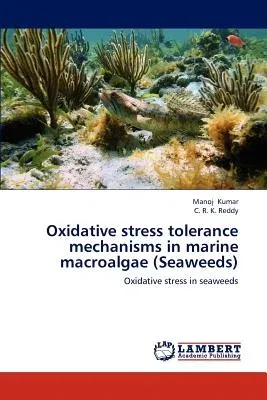Kumar Manoj
(Author)Oxidative Stress Tolerance Mechanisms in Marine Macroalgae (Seaweeds)Paperback, 22 November 2012

Qty
1
Turbo
Ships in 2 - 3 days
In Stock
Free Delivery
Cash on Delivery
15 Days
Free Returns
Secure Checkout
Print Length
160 pages
Language
English
Publisher
LAP Lambert Academic Publishing
Date Published
22 Nov 2012
ISBN-10
384737432X
ISBN-13
9783847374329
Description
Product Details
Authors:
Book Format:
Paperback
Country of Origin:
US
Date Published:
22 November 2012
Dimensions:
22.86 x
15.24 x
0.94 cm
ISBN-10:
384737432X
ISBN-13:
9783847374329
Language:
English
Pages:
160
Publisher:
Weight:
244.94 gm

